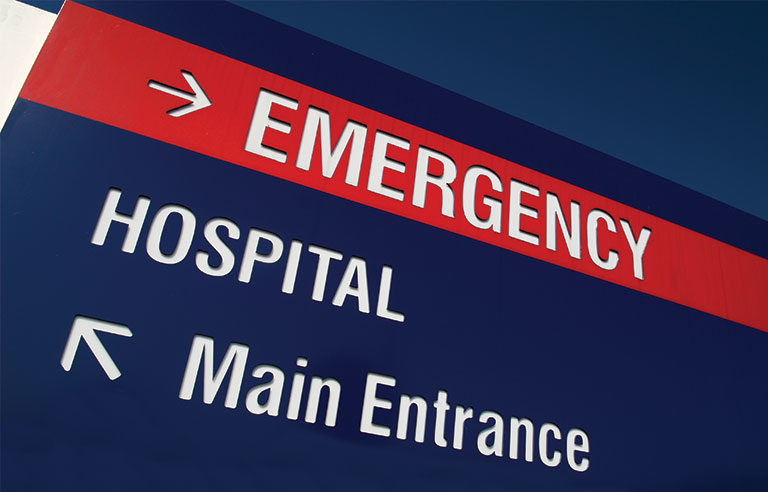ER doctors to public: Don’t delay necessary medical care amid COVID-19 pandemic

Washington — Heart attacks, strokes and other health emergencies don’t stop because of the COVID-19 pandemic. That’s the message the American College of Emergency Physicians is sharing with people who may be putting off necessary medical treatment – in some cases, emergency care – out of fear of contracting the respiratory disease.
“Despite concerns about the coronavirus, there is no reason to delay or avoid treatment if you think you’re having a medical emergency,” ACEP President William Jaquis said in an April 15 release. “People continue to have accidents, heart attacks and strokes, and the emergency department remains the best – and often only – source of lifesaving care, even during a pandemic.”
Some emergency rooms across the country have experienced a drop in patient volume of more than 30% in the past month, ACEP notes. The group adds that some rural ERs and those in underserved communities are seeing fewer patients, but those whom they do treat are reportedly more seriously injured or ill, suggesting they are delaying necessary care.
“Waiting too long to seek medical attention could make the difference between life and death,” Jaquis said.
Patients who experience any of these injuries, warning signs or symptoms should seek emergency medical care immediately:
- Bleeding that won’t stop
- Difficulty breathing or shortness of breath
- Change in mental status, including unusual behavior, confusion and difficulty arousing
- Chest pain
- Choking
- Coughing up or vomiting blood
- Fainting or loss of consciousness
- Feeling suicidal or homicidal
- Head or spine injury
- Severe or persistent vomiting
- Injuries resulting from a serious motor vehicle crash, burns, smoke inhalation, near drowning, deep or large wounds, or other serious injuries
- Sudden, severe pain anywhere in the body
- Sudden dizziness, muscle or general weakness, or change in vision
- Ingestion of a poisonous substance
- Severe abdominal pain or pressure
Post a comment to this article
Safety+Health welcomes comments that promote respectful dialogue. Please stay on topic. Comments that contain personal attacks, profanity or abusive language – or those aggressively promoting products or services – will be removed. We reserve the right to determine which comments violate our comment policy. (Anonymous comments are welcome; merely skip the “name” field in the comment box. An email address is required but will not be included with your comment.)
